The Newbie’s Guide to Road Cycling Equipment
How to avoid Roadside Drama – what cycling gear to buy and when…
You went for your first ride… got a puncture or had a nightmare mechanical! – what now?
Here’s a quick and dirty guide to help get you kitted out with the basic essentials in terms of Road Cycling tools and equipment to keep you pedalling happy!
Guide to Road Cycling Equipment – Saddle Bags
Something like this:
- Altura Nightvision Road Saddle Bag (0.4L option) – £9.75
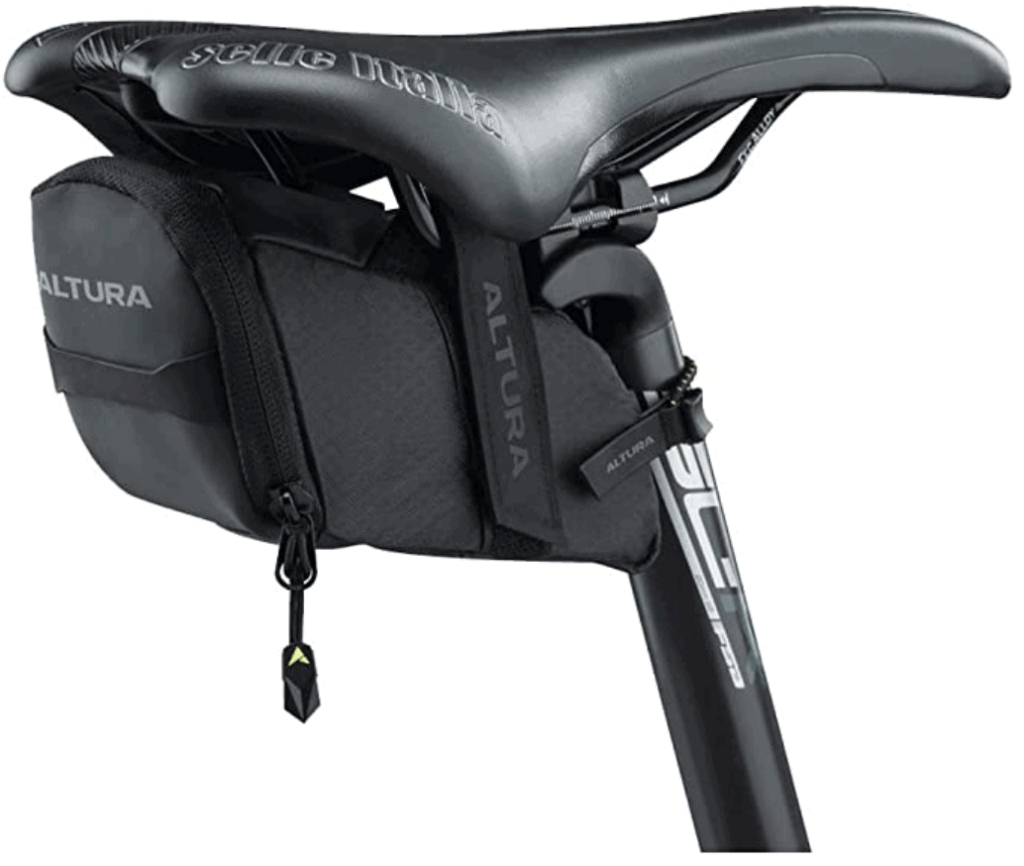
Guide to Road Cycling Equipment – Inner Tubes
Typically £5-6 a piece, maybe £7+ in shops.
Good brands: Specialized, Continental, Scwalbe, Michelin, Bontrager (Trek)
Something like these (3 pack):
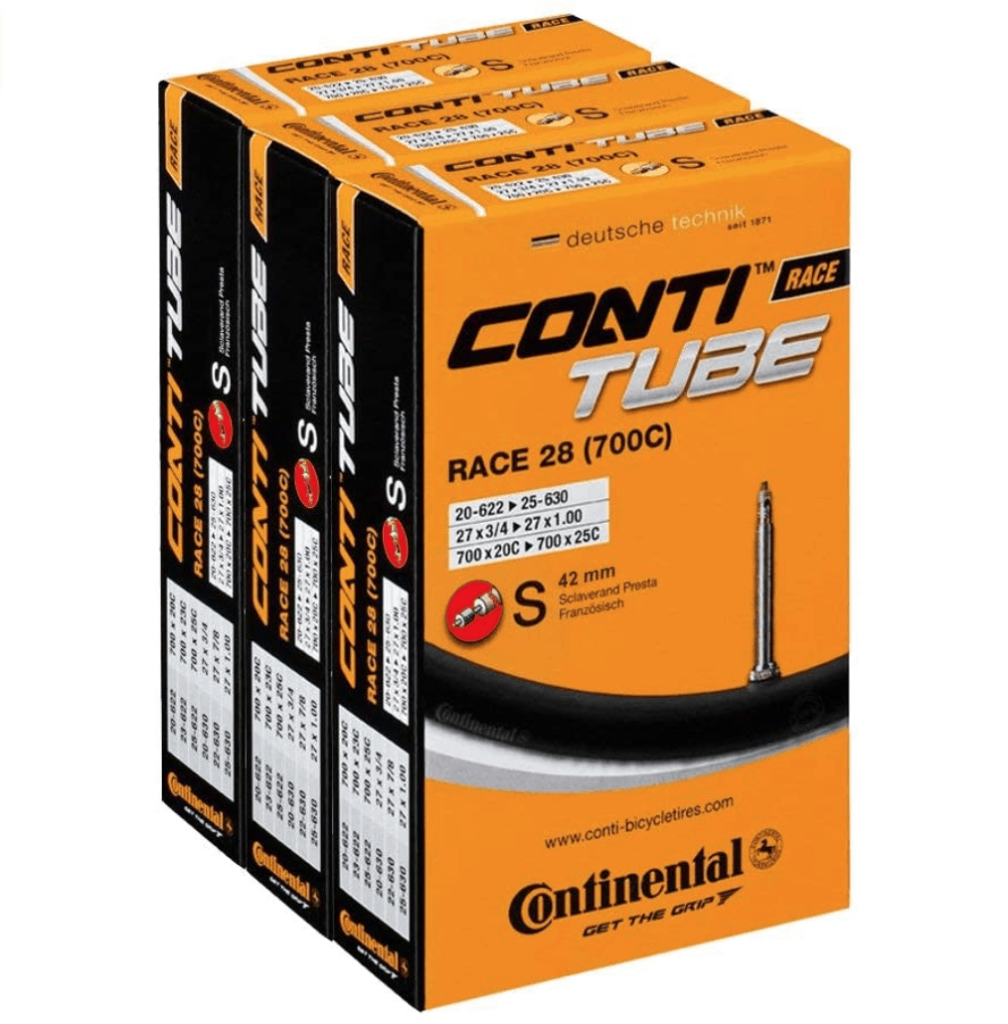
FYI – the 700 is the typical road wheel diameter (700cm), and “20-25c” is referring to tyre width… the standard race width used to be 23mm, however the trend today is for wider – typically 25mm or even 28mm.
Guide to Road Cycling Equipment – Tyre Levers
Carry two. Simple things. Get a pack of 3 good ones, I’d recommend these:
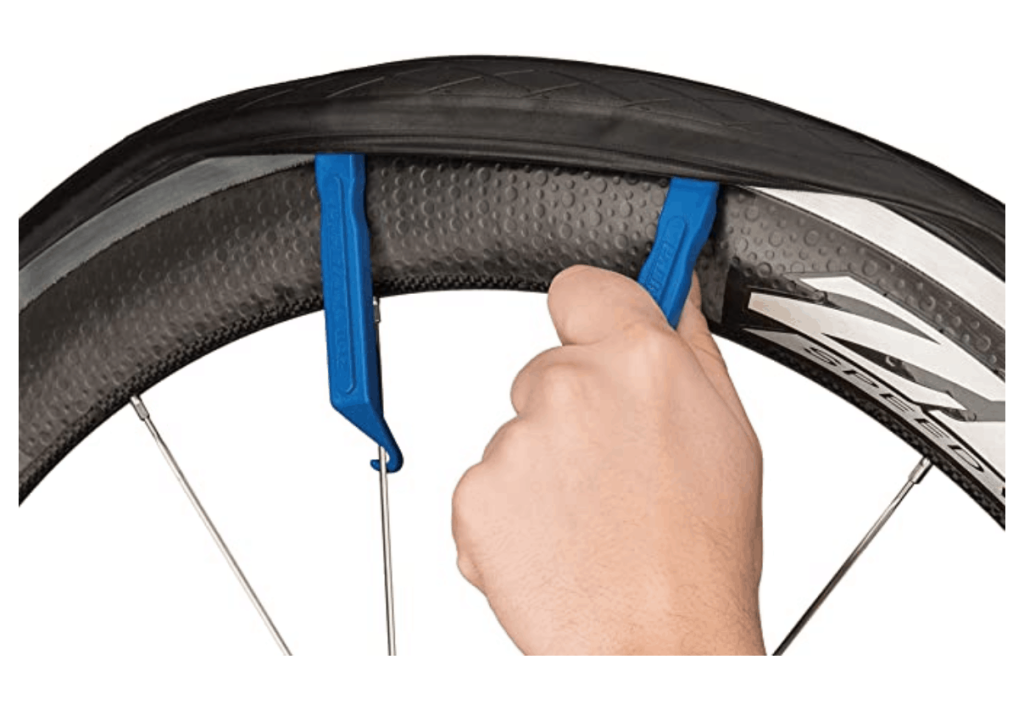
Guide to Road Cycling Equipment – CO2 Tyre Inflator
C02 Tyre Inflator tools for Road Bikes are the quickest way to re-inflate a puncture whilst out on the road (alternative is carrying a long / traditional pump). They’re really small too.
I’ve switched to these ones, because they have a switch / lever which opens and closes the gas, to give more control. Others just use a screw mechanism, and often the CO2 just blasts in and you don’t really get a say on how hard your tyre is.

Guide to Road Cycling Equipment – CO2 Gas Canisters (Refills)
Get anything. Need threaded ones for that Inflator Device (above) though. Can get smaller boxes (just 2-3), but they’re cheap and you run through them eventually anyway.
Best option is to buy in bulk from Amazon…
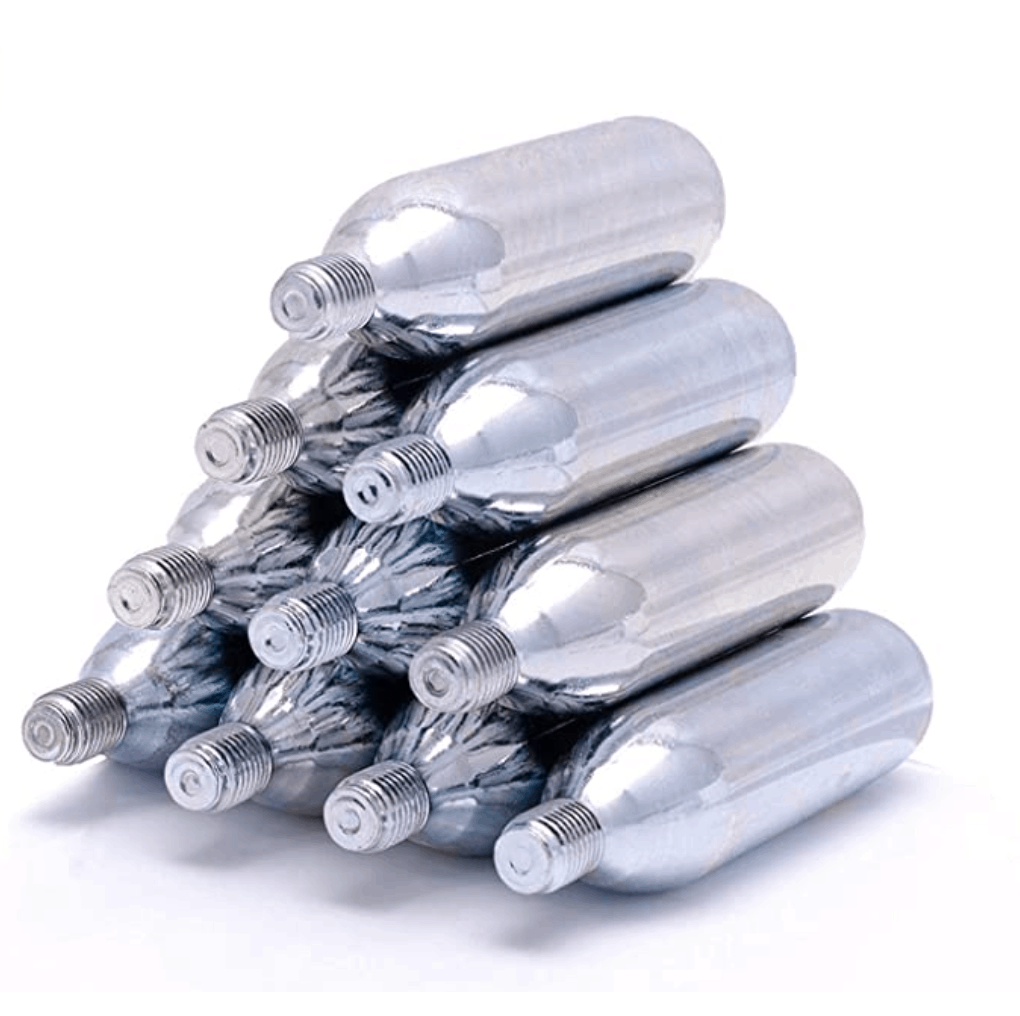
That (above) all sorts you for any flat tyre dramas, but the other semi-common issue is snapping your chain.
What to do if you snap your chain
If your chain snaps, the quickest way to get going again is to use a Chain Tool to break / cut out the broken “link”, and then just use a “Magic Link” to bridge the break. The Magic Link can then stay in place thereafter.
Plenty of people (including me), go straight for putting a Magic Link into a chain anyway, because it’s an easy way to take the chain apart again for cleaning or whatever later.
Options for dealing with Chain Snap Drama…
Get a pack of “Magic Links’… these come in pairs – left hand side, and right hand side, and they just clip together to join the chain. Typically get 3 pairs in a pack. You need only carry 1 pair in your saddle bag, and then just leave the other two in the toolbox for later.

You can either get a separate Chain Tool, or there are plenty of Multi-Tools which now have them built in. I have a separate one, but maybe the cheaper and more efficient option now is one built into a multi-tool. That way you have a means of breaking / removing a broken chain link, plus the advantage of a range of Allen keys and screw driver heads, to do any adjustments to your bike.
The Top Picks (Magic Links for Road Bike Chains)
- Jovitec 3 Pairs Bicycle Missing Link 11 Speed Chain Reusable Silver Steel Bike Chain Link – £6.99
- PLUS
- Park Tool IB-3 I-Beam Mini Fold-Up Hex Wrench Chain Tool Screwdriver and Star-Shaped Wrench Set Tool – £18.00
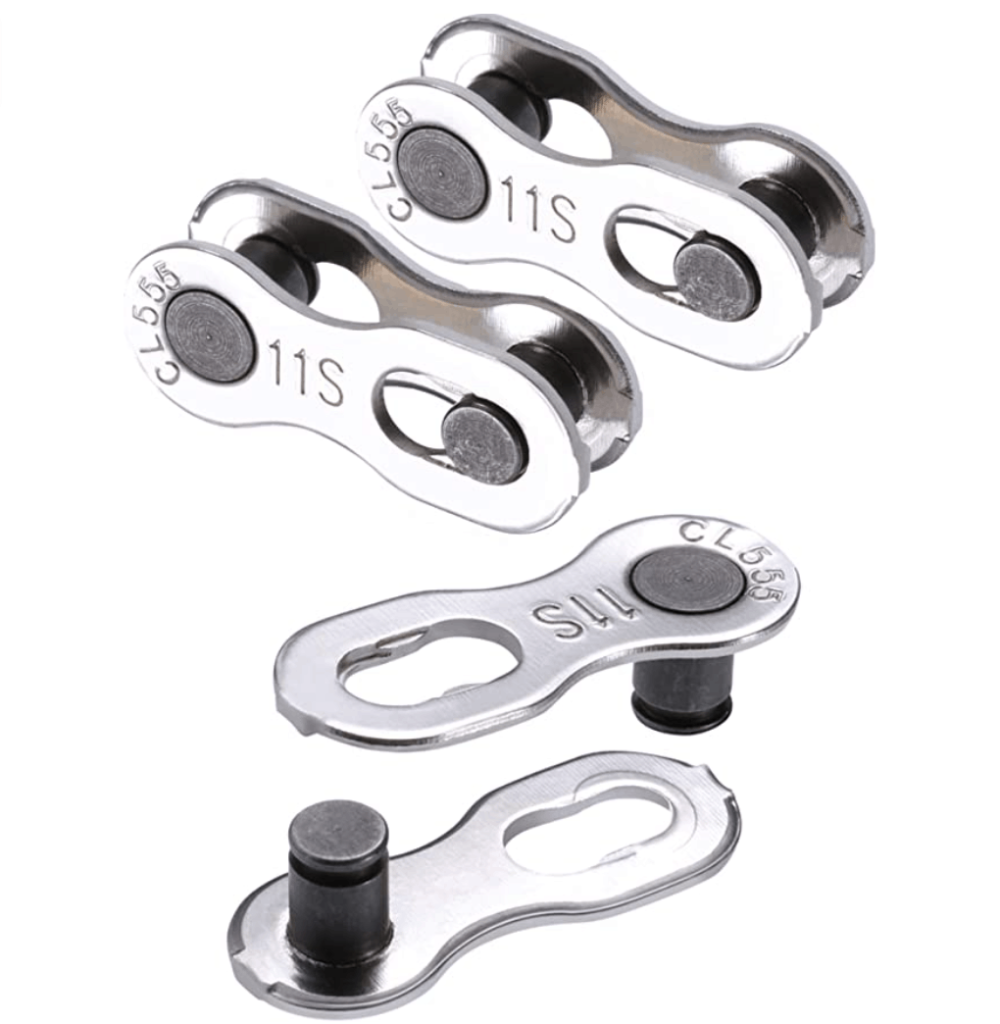
Guide to Road Cycling Equipment – Want to go one step further?
Why are you ending up with punctures anyway, and how can you safeguard against them before you next head out?
Most road bike punctures happen in one of 2 ways –
“Snakebite” or Pinch Flat – the tyre either hits a pothole / kerb (or similar) hard enough, that the tyre deforms enough to pinch the inner tube down on the rim, and you end up with two ‘slits’ in the tyre, where the pinch point has nipped it. This typically happens if you’re running too low a tyre pressure. If you run a higher tyre pressure, then the tyres will be more robust to big hits like potholes, but the ride might be a bit harsher / not as soft.
Pierce / point puncture – typically caused by ‘sharps’ such as glass, thorns, nails, tacks, etc. These are the ones that stick into and pierce your tyre when you ride over them. They typically leave a small nick or cut in the tube and tyre, and on inspection you’ll often find the offending piece of sharp gravel / glass, or thorn, embedded in your tyre and just nicking the inner tube below.
Again, these are less likely if you have properly inflated tyres. They’re also less likely if you go for a “Winter” or “Puncture resistant” set of tyres, which have tougher casing and inner lining material built into them. The Continental Gatorskins are famous for this!
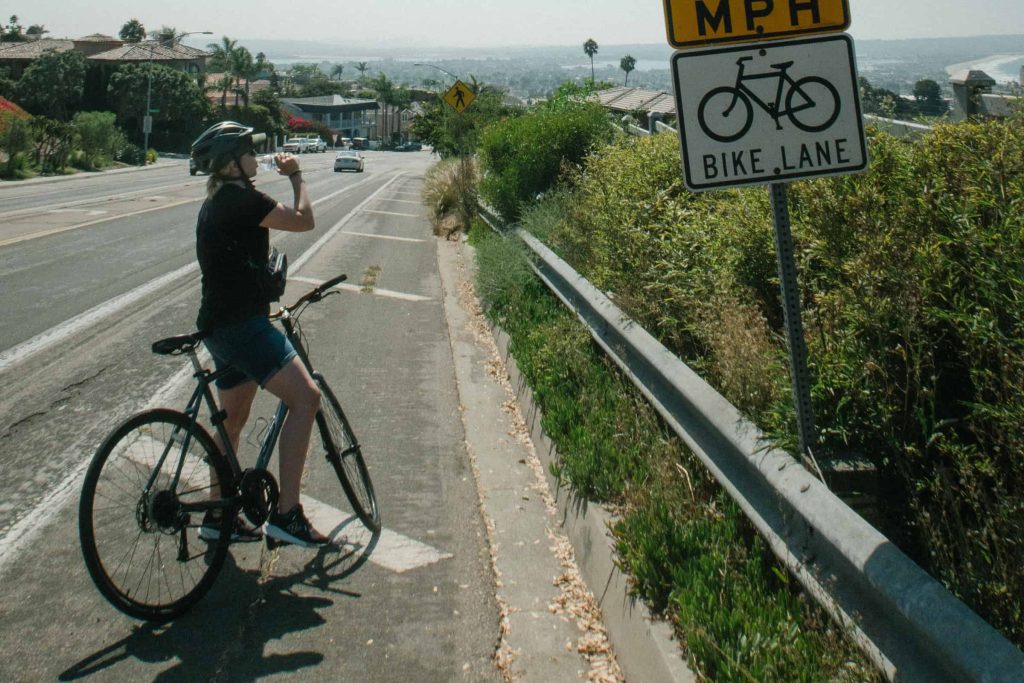
If you’ve had a puncture out on the road, or even if you haven’t and have just left your bike sat still indoors for a while – chances are that the tyre pressure will be less than it should be. Inner tubes and tyres naturally leak air slowly over time, and a tyre re-inflated at the side of the road using CO2 canisters is not likely to be at optimal pressure.
The best answer? – buy a Track Pump.
A track pump is one of those larger bike pumps which stays at home, and is stored in the garage or cupboard. They’re big, and have a large floor plate / base to stand on. Crucially, they also come fitted with accurate pressure gauges!
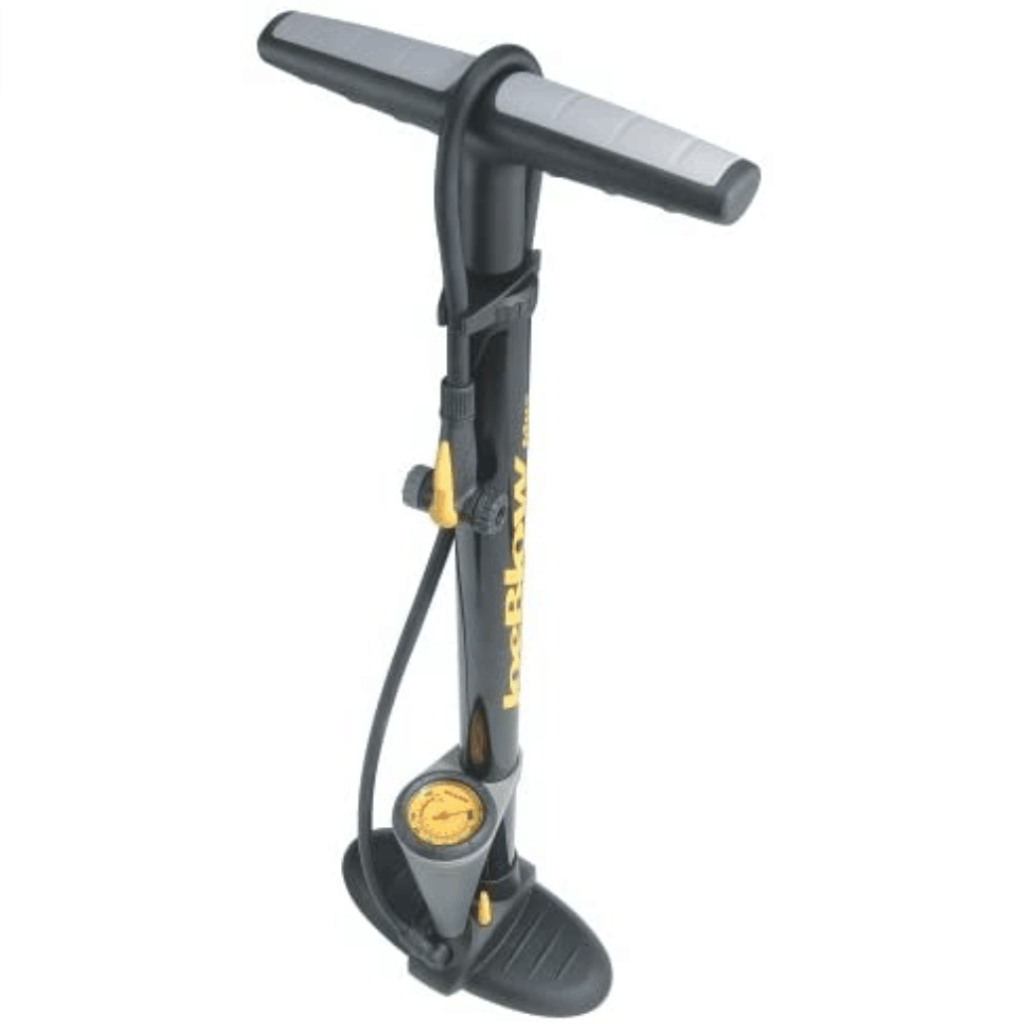
Using a track pump regularly will get you to the right tyre pressure, which will be stamped on the side of your tyres. This will give you confidence before each ride that you’re tyres and pumped up, aren’t too hard so as to risk slipping in the wet, but also aren’t too soft so as to invite punctures!
Guide to Road Cycling Equipment – A few great options for Road Bike Track Pumps
- Topeak Joe Blow Max II Floor Pump – £26.36
- Park Tool PFP-8 Home Mechanic Floor Pump Tool – £24.95
- Topeak Joe Blow Sport 3 Floor Pump – £43.95 *(Sam has this one, but thought it used to be cheaper?)
Guide to Road Cycling Equipment – Road Bike Computers
I have an old Garmin Edge 800, from about 10yrs ago.
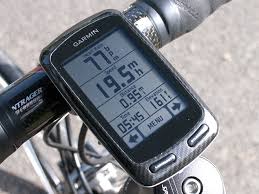
(Old Garmin Edge 800)
They were the best back then, but these days there are a few more great options.
A big favourite these days looks to be the Wahoo Elemt Bolt…
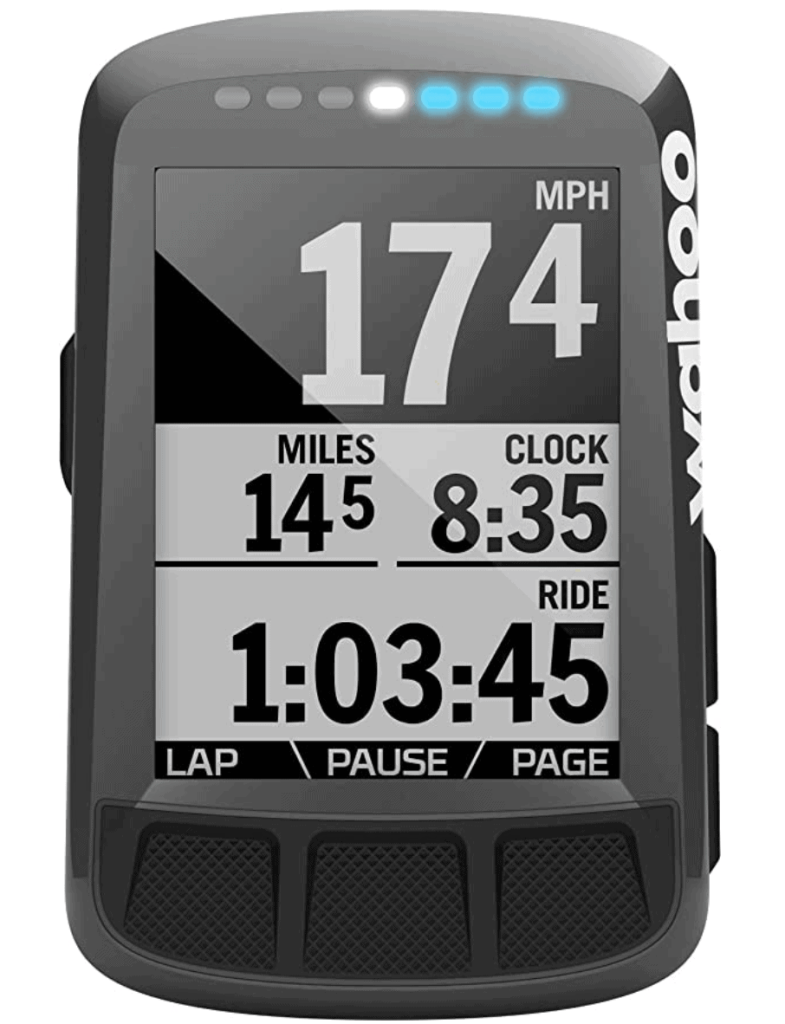
(Wahoo Elemnt Bolt)
Guide to Road Cycling Equipment – Best Options for Road Bike Computers
If I were buying a new one today, I’d probably go for a Wahoo Elemnt Bolt. The current Garmin equivalent is the Gamin Edge 520.
Both are similar prices (about £185 / £165), which is thankfully a lot cheaper than 10yrs ago when bike computers first started to hit the scene. Think my old Garmin Edge 800 was around £350 back then!
- Here’s a decent review of a few options from Cycling Weekly – Cycling GPS Units – Buyer’s Guide 2020
- The Wahoo Elemnt Bolt comes out 10/10, and the Garmin 520 gets 9/10.
Happy riding!
This Post Contains Affiliate Links. Click Here To Learn More.
